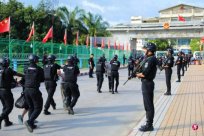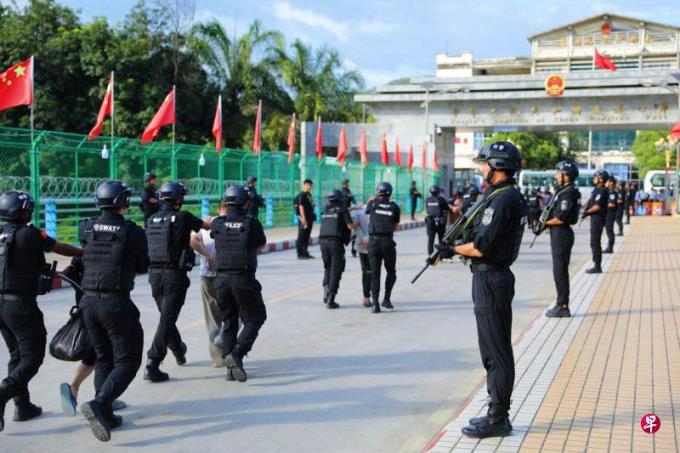
The news about the Chinese people trapped in northern Myanmar fraud parks have seen the news from time to time in recent years, which has attracted much attention from the gray industry.How does Myanmar, a mysterious country that has been in the civil war for a long time, has become a hotbed of telecommunications fraud?Can the joint law enforcement of China -Myanmar regulate fraud?How is neighboring tourism industry be implicated?
Cai Weijun, a Chinese businessman from Taizhou, Zhejiang, invested approximately 5 million yuan (RMB, the same below, about S $ 950,000) in 2018. It established a waste plastic recycling plant in Laota, Myanmar for plastic processing and manufacturing.
Lamada is the second largest city in the northern Myanmar. History and culture have a relationship with Yunnan, China.More than half of the local population of more than 300,000 are Chinese, one of the cities and towns with the highest proportion of Chinese in Myanmar and the most popular Chinese education culture.
Cai Weijun told Lianhe Zaobao that many Chinese businessmen chose to do business in Laota. They are low local labor costs and Chinese employees who speak Chinese.But what he dreams of dreaming is that this characteristic of La Ting was just seen by the scam gang.
The telecommunications fraud gang originated from Taiwan was targeted in mainland China, and began to transfer to Cambodia's Sihanouk Port (referred to as West Port) five years ago.In addition to fraud, these criminals often involve illegal activities such as gambling, murder, population trading, and imprisonment, and have been on the cusp.
For the pressure of public opinion, Cambodia also began to hit telecommunications fraud activities in the second half of last year, which led to the transnational transfer of telecommunications fraud bases again.This time, it was transferred to Myanmar.
In fact, as early as a few years ago, some fraud gangs have begun to set their sights on the "Golden Triangle" area in northern Myanmar and southeastern Myanmar.
Myanmar implements a new gambling law in 2019, allowing foreigners to legally register and operate casinos in Myanmar.The introduction of the new bill, coupled with the rapid development of mobile technology, further accelerated the development of northern Myanmar gambling and fraud.
Cai Weijun recalled that he first heard that Myanmar's fraud park was in early 2020. At that time, the crown disease epidemic was raging. Many Chinese businessmen in Myanmar were miserable, but a friend who business in Yangon claimed that he would go to southeastern Myanmar.The "branch factory" of Miaowa is opened.
"I was very puzzled at that time, I don't understand what there is any business opportunities such as Miaowa Line. I found out to my friends that he called the big project, which is actually a fraud park."
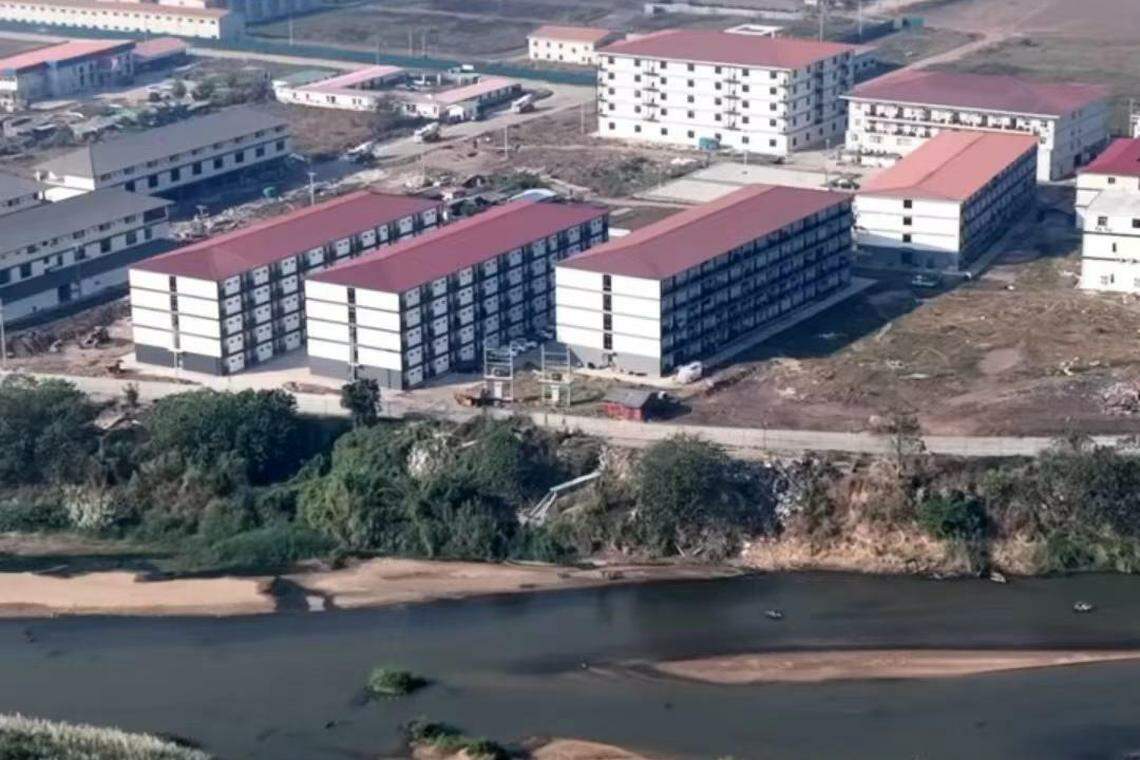 />
/>
After the rise of fraud parks in northern Myanmar, it caused a huge impact on the recruitment of employees of Cai Weijun.Due to the closure of land ports during the epidemic period, the goods cannot be exported to China, and many factories have been forced to stop working. Many Myanmar employees jumped to work in the fraud park after unemployment and earned richer salary.Fuck old karma.
Cai Weijun said that these employees originally worked at the factory, and the salary was generally only about 1,500 yuan. After going to the fraud park, the income increased at least four times.Several 200,000 yuan."The young Myanmar workers I know have previously done administrative, tour guides, and translators. Almost all of them are working in the park."
What makes him feel helpless is that the behind -the -scenes bosses behind the North Myanmar Fraud Park are all Chinese, which makes local people mistakenly think that Chinese businessmen in Myanmar are engaged in fraud, and they have made a lot of money. Many people-- Especially government officials, or police officers or soldiers with law enforcement -then they were greedy and started the idea of Chinese businessmen.
Cai Weijun said: "When they see the Chinese seeing the RMB, they take the opportunity to extort them, find various reasons to report to us, and find a way to get some money from us."
Cai Weijun was abducted by a former employee in May last year. The other party asked to pay 300,000 yuan with ransom to let people go.He said: "Fortunately, I contacted a friend who was a bit of power in the local area, and asked him to bring the gun with me to meet me before he successfully got rid of the kidnappers."
However, with this experience, Cai Weijun began to re -consider whether to stay in Myanmar to do business.He said: "The situation here seems to not improve in the short term, and my investment is destined to have no return. In order to make my family feel at ease, I may have to give up and return to China to come back again."
The victims of northern Myanmar scam activities, in addition to businessmen like Cai Weijun and those who have lost money, of course, include Chinese people who have been deceived to local telecommunications network fraud.From time to time, the news from the news from time to time, many victims who were rescued to China disclosed to the media that they were seduced by "high -paying recruitment" information to be deceived to northern Myanmar.Essence
The United Nations quoted "reliable news" in August this year that at least 120,000 people were forced to work in Myanmar for scam groups.In addition to China, the victims also include Southeast Asia, even Africa and Latin America. Many people actually have a good educational background, engage in professional work, proficient in computers and various languages.
Dr. Zhang, a Chinese Academy of Sciences Zhang, was trapped for more than a year after Miaowa Da was trapped. The news of being rescued in September this year also appeared on Weibo hot search.
A Long (pseudonym), a Chinese volunteer who participated in the rescue operation of Dr. Zhang, has rescued more than 200 victims from the Cambodia and Myanmar Fraud Park in the past few years.
Aaron admitted in an interview that Myanmar's rescue operation was more difficult than Cambodia, mainly because the local situation was much more complicated.
He explained that due to the unstable geopolitical situation in Myanmar, most foreign scammers can only enter the country through intermediaries, and the entire process has increased the employment cost of the fraud park.
He said: "If you enter the country through legal channels, the cost of air tickets and ordinary transportation is up to 10,000 or 20,000 yuan. Once involved the smuggling, the number is less than 100,000 yuan, as many as 400,000 yuan.Various expenses of these personnel in the park. "
He said: "Although the Myanmar military government actively cooperates with telecommunications fraud, because most parts of northern Myanmar are not within the scope of the central government's jurisdiction, their ability is limited. Local armed organizations are people who directly get the dividends of the fraud park.Will not be so willing to cooperate with rescue operations. "
Aaron lamented that the biggest problem at present is that the scam industry in northern Myanmar is still expanding disorderly, and many people actually voluntarily want to work in the fraud park.
He said: "Media reports always focus on the victims rescued from the park, but what we cannot ignore is that the number of people who seek for help accounts for less than 1%.The scam staff is still good, they make money and don’t want to go. "
China and Myanmar have carried out multiple rounds of anti -telecommunications fraud joint law enforcement for more than a month, with more than 2,300 fraud suspects arrested.Scholars of interviewees believe that improving China's employment situation and economic environment is the long -term plan to crack down on fraud groups.
After China and Myanmar reached a consensus on cracking down on cross -border telecommunications fraud cooperation in late August, the law enforcement department of the two parties began joint law enforcement operations on northern Myanmar fraud parks in early September to destroy the numberA fraud den.Participating in joint law enforcement also includes the Pupan government that is not within the jurisdiction of the central government of Myanmar.
As of October 10, there were as many as 2,317 fraud suspects arrested and escorted from northern Myanmar, including behind the scenes, organizational leaders and backbones.
Before that, the police of the four Sino -Thai -Myanmar nations also launched a special cooperation in mid -August to jointly establish a coordination center in Chiang Mai, Thailand to crack down on crimes such as gambling and derived population trafficking, abduction, and illegal detention.This is after the "Mekong Grand Case" in 2011, the four countries' multinational joint law enforcement actions have entered another new stage.
Zhang Yun, director of the Southeast Asia Research Institute of Jinan University, pointed out in an interview with Lianhe Morning Post that the coordination center can play a role in intelligence exchange, and cooperate in the detection, deployment and arrest of major cases to combat cross -border telecommunications fraud more accuratelyEssence
He also said that the coordination center will be able to overcome the restrictions facing Chinese police in cross -border law enforcement."The central government in Myanmar does not have law enforcement in some areas of northern Myanmar, but through this mechanism, China will directly cooperate with local forces to combat telecommunications fraud."
The rescue volunteer Aaron in the fraud park believes that from the official perspective of joint law enforcement operations in the past a year, it is a great victory and has also played a certain deterrent effect on the fraud industry.But he did not deny that it was too early to say that the situation had been improved at this stage.
He said: "For an industry of 50,000 to 600,000 people, do you think what are the arrest of two or three thousand people? There are more than these people in a park, let alone thousands of parks in northern Myanmar."
In addition to increasing anti -fraud propaganda and law enforcement operations, Zhang Yun believes that improving the employment situation of young people in China and the economic environment of China are the long -term measures to combat fraud groups and fundamentally solve problems.
Zhang Yun explained that whether he was caught in a migrant scam or a victim who was deceived by money, the incentives were in the final analysis of the people who were dissatisfied with the status quo and wanted to make fast money."The fraud group uses this psychology to deceive them in. But if these people have good employment in China, they will not go out and take risks."
He proposed to increase talent exchanges with Southeast Asian countries, especially in the field of manufacturing, technology, finance, and energy, through technological transfer and knowledge sharing to promote local industrial upgrading and technological innovation.He said that if you can provide better employment conditions than the fraud industry, it is possible to prevent people from being set by the industry.
Aaron believes that no matter what the economic situation, there will be a group of people who want to make fast money and do not work. This is also a reason for the long -term survival of the fraud industry.
He said: "As long as they are greedy and unwilling to work hard, they will not work hard to make hard work. All their encounters are caused by that uneasy heart, greedy, they are all, they are all, they are all, all are all greedy, all are all greedy. They are all greedy. They are all greedy."
The scam activity was transferred by the base camp, but the result was the business card of Southeast Asian tourism.The negative news about the fraud park allows Chinese tourists to follow Thailand and Cambodia, which leads to a slow recovery after the local tourism industry.Experts emphasized that tourists are very low by "gag wafers" or abduction or abduction, and they are more rumored.
Thailand has been a popular tourist destination for Chinese tourists in the past 10 years.There are as many as 11 million Chinese tourists entering Thailand in 2019, accounting for more than a quarter of the total number of tourists to Thailand; the tourism industry accounts for 11%of Thailand's GDP, providing employment for 20%of Thai people. Chinese tourists return after the epidemic.It is important for the country to boost the economy.
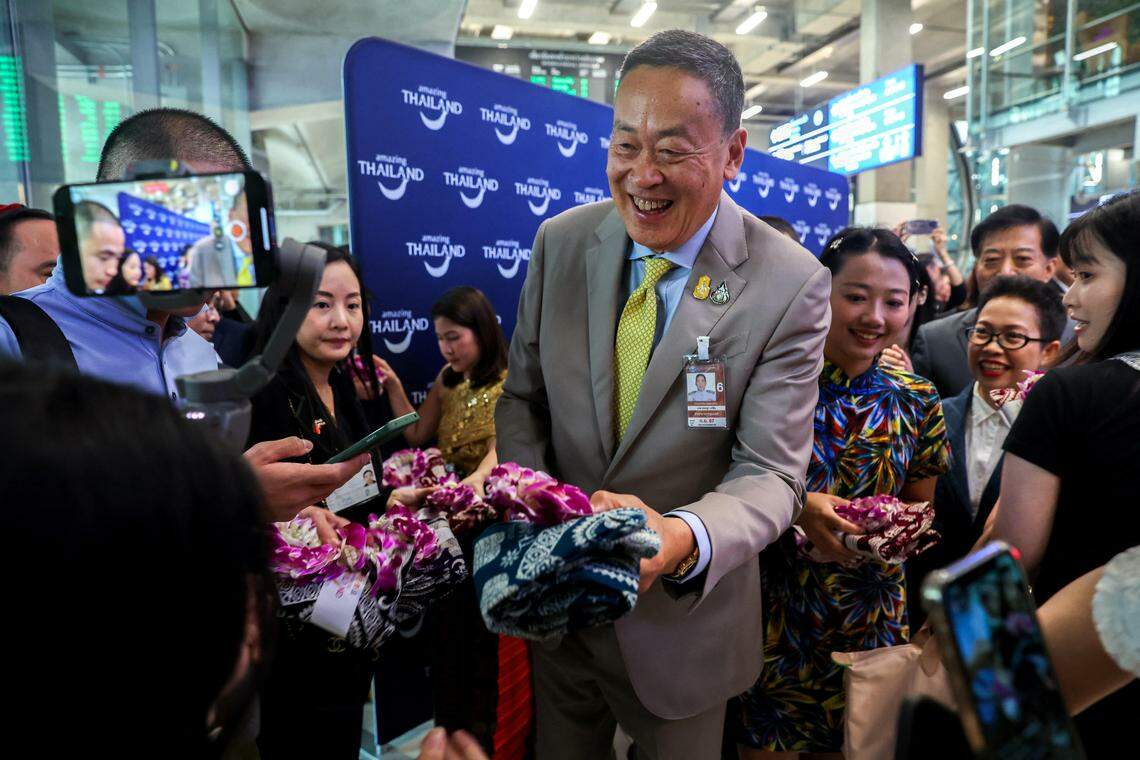
However, the recovery of Thailand's tourism industry after the epidemic is not expected to be strong.According to the latest data released by the Thailand Tourism Administration, in the first nine months of this year, there were only about 2.3 million Chinese tourists entering Thailand. In the past 10 years, it fell out of Thailand's largest source.
According to Agence France -Presse, the chairman of the Thai Travel Agency Association, Sisti, believes that the negative remarks on Thailand on the Internet are one of the reasons for the decline in the number of Chinese tourists.
From time to time, Chinese social media reported that there were false news that passengers were "giant waist" and abducted when traveling in Thailand. Some Thai media reported that many unscrupulous Internet celebrities attracted attention through such false information and earned traffic through this kind of false information, earned traffic and earned traffic.Essence
The disappearance of her and lone betting on the disappearance of the two films related to Southeast Asian gambling and criminal activities in August this year, which further strengthened people's misunderstandings.Although the film is not mentioned in the film, the scene is similar to that of Thailand, Cambodia and other countries, making the security topic of Southeast Asian tourism a focus of online public opinion.
Zhou Huixiong, a 35 -year -old Shenzhen programmer who traveled to Thailand during the Eleventh Golden Week holiday to Thailand, believes that these negative information has been continuously focused on online public opinion, and the actual situation is not the case.He said: "My travel experience in Thailand this time is very good, and it is not the same as the previous travel. Except for the shooting incident (referring to the shooting incident of Siam Palace in Bangkok Mall on October 3), public securityThere are no problems. " According to Zhou Huixiong's observation, there are actually many Chinese people who travel to Thailand during the holidays. Whether it is a flight to Bangkok, or a local hotel or a tour group, it is full. Almost all tourists are Chinese.
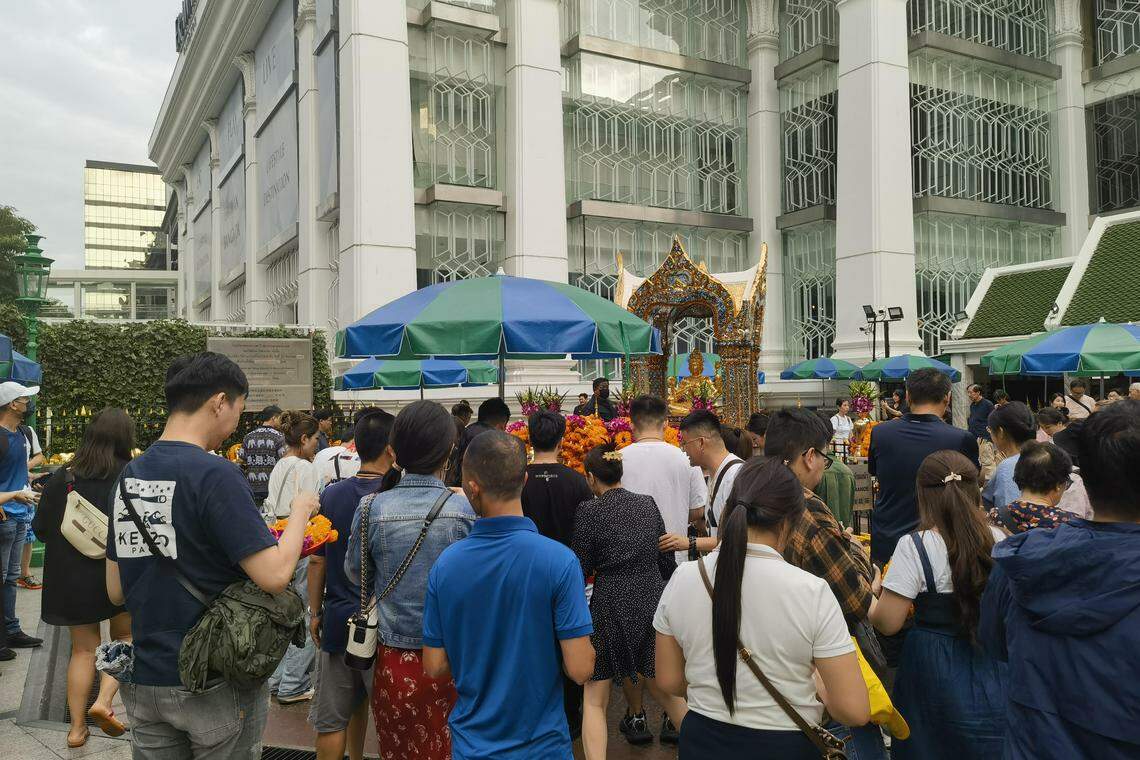
In order to attract more Chinese tourists, Thailand has implemented visa -free policies on Chinese tourists from September 25.Officially predicts that the five -month -old visa -free measures will attract 2.9 million Chinese tourists to visit Thailand and bring 140.3 billion baht (about 5.2 billion yuan) revenue.
Cambodia, which has been scandal in the past few years, is not so optimistic.Zheng Dengyao, a Singapore businessman who has been in a hotel for more than 20 years in Phnom Penh, lamented that the negative news about Cambodia caused the number of Chinese tourists to decline, and the occupancy rate of many local hotels was only 30 to 40%.
He said: "We don't feel the booster of the tourism industry during the Golden Week holiday. The time point of these movies is just before the Golden Week, and the security topic directly eliminates people's desire to travel to Cambodia."
Lei Xiaohua, deputy director of the Southeast Asia Research Institute of Guangxi Academy of Social Sciences, studied and judged that in addition to security concerns, the main reason for the weak recovery of Thailand, Cambodia, and even Southeast Asian tourism is that the Chinese economy faces downlink pressure, which has led to a decline in the willingness of people's willingness to spend tourism.
The data released by the Chinese official last Saturday (October 7) showed that the number of outbound tourists during the Eleven Golden Week holidays was restored to 85%of the same period before the epidemic in 2019.
Regarding the rumors of discrediting Southeast Asian countries on the Internet, Lei Xiaohua believes that China and affected countries can strengthen their publicity through different media.In addition, China should also guide such fake messages circulating on the Internet to avoid negative public opinion fermentation and pass on the rumors.
Aaron, rescued volunteer in the fraud park, emphasized that almost all of the innocent Chinese tourists spread in Thailand and CambodiaThe news of the scam group's attention is not true, or it is broken.
He said: "99%of the cases of being abducted are actually involved in the gray industry, and many victims and kidnappers know it. I have been rescued in Southeast Asia for so many years, and I have never met tourists walking on the street.Cases sold for fraud parks. "
Aaron explained that in order to operate for a long time, the fraud park basically abides by the rules of disagreement with the outside world."They all act low -key, hoping to make a fortune in the park.


